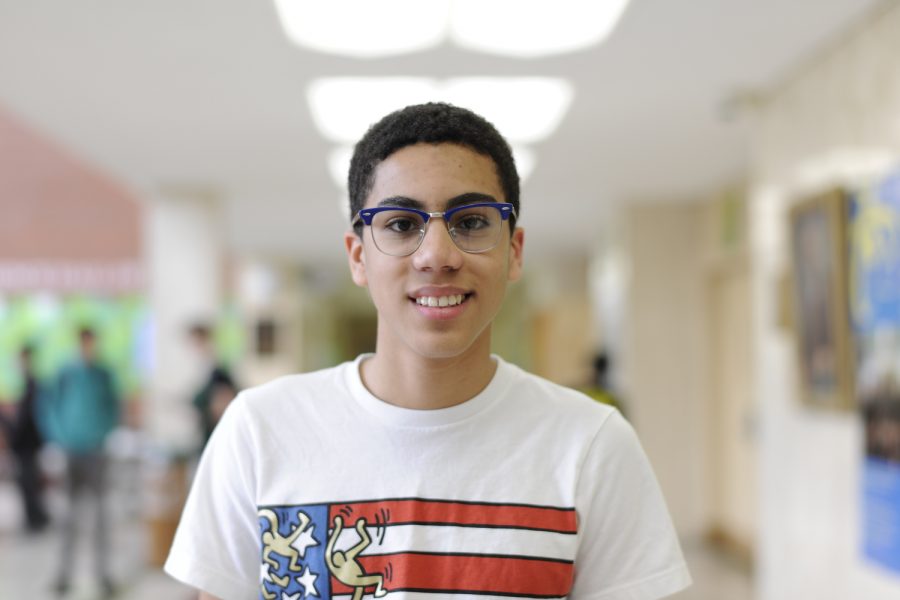Us Review
Michael Toscano ’21 enjoys the movie’s plot twists and said that he felt the ending was very tragic.
Warning: there are some minor spoilers ahead.
The film “Us,” directed by director/comedian Jordan Peele, marks his second foray into the horror genre. And it is certainly one he pulls off with style.
Basics first: the plot follows your standard American family of two parents and two kids. They are on vacation with their friends in Santa Cruz, California, a getaway that, as it will soon turn out, they cannot wait to get away from. The main protagonist is Adelaide Wilson (played by Lupita Nyong’o), a loving wife and mother who has a bit of history in the area. However, she is willing to put aside her reservations for the sake of her children and husband, who are presently unaware of the secret that she harbors or of the things that lurk in the dark. Namely, doppelgängers. People who think, speak, and look like you — only with added murderous intent. But nothing is ever, really, as it seems.
The presence of homicidal clones plays into the ever-pervasive uncanniness that simmers throughout the movie. It is, in part, aided by preconceived expectation. Contrary to the gloom of an drafty mansion, the carefree environment that ought to be the setting of a decidedly less dramatic story lends unease precisely because it is simultaneously atypical and typical. Atypical because of the existing tropes of the genre, and typical because…well, it’s so normal. I’d venture to say that none of us will dare approach a rundown Victorian estate, a dilapidated cemetery, or some shack in the middle of the woods, but that would not hold true for fun times at the beach. The color scheme likewise reflects this, a bright, retro chrome belies traditional muted grays. It’s almost comforting. The same goes for the familiar personalities: the phone-addicted teenager in Zora Wilson (played by Shahadi Wright Joseph), the awkward child in Jason Wilson (played by Evan Alex), the comical dad in Gabe Wilson (played by Winston Duke), the pragmatic mother in Adelaide, all of whom share a realistically flawed but close relationship, played out beautifully by the talented cast. The film takes care to portray them as more than disposable stock characters in the beginning. Besides, they are not the only ones who are going to be in danger — the rest of the continental United States will likewise be subjected to the ensuing chaos. An example of subversion done well, it is not done for its own sake, but rather to remind that no place and no one is truly safe. Except Mexico.
“The film seems more to be a thought-provoking meditation of the “Us versus Them” mentality, as incongruous as that is in what is traditionally a vapid, thrill-seeking medium.”
Other times, originality just feels overwrought. The fluffy bunnies of pleasant associations transformed into sinister “rabbit hole” motifs is a nice touch, but I fail to see much significance past its unsettling the viewer. And even if they did carry some hidden symbolism, it cannot be easily divined from scant clues in the film and would require a subsequent Google search, which I suppose the audience is meant to do, as the mirrored numbers of Jeremiah 11:11 crop up many times with nary any context for Bible-illiterates. Such deliberate vagueness can be interpreted as a speculative free-for-all. Or it can leave a discontented and thoroughly confused audience. Maybe it’s just a horror thing?
Begging the question: is it horror? The film does have its moments: jumpscares, gore, creepy soundtracks, and gratuitous furniture-breaking galore. Many kudos to the actors, and their terrific double renditions, for making the formulaic effective. As for the script, I notice that tense moments are often dissipated with injection of bathos. As Sterling Knight ’19 said, “Since it’s from Jordan Peele, it [is] appropriately funny.” Peele’s signature humor brands the movie like a watermark, and is about as distracting as one. Being fair, in other instances, it is welcomed. A personal favorite scene pairs inappropriate music with a particularly gruesome encounter.
That said, most of the real terror is found in the implications of having doppelgänger adversaries rather than in the suspense. The film seems more to be a thought-provoking meditation of the “Us versus Them” mentality, as incongruous as that is in what is traditionally a vapid, thrill-seeking medium. When the possibility of an allegory is taken into consideration, suddenly, “Us” makes a lot more sense. The motives of the doppelgängers, the recurring themes of dichotomy, of linkage, the twist ending, even the aforementioned politically-bound range of the crisis. With so much to ponder, audiences are bound to have different interpretations of the supposed message.
Michael Toscano ’21 said, “The movie had a number of interesting plot twists, which were completely unexpected.” He also mentions that, “I agree with a theory that the title “Us” also stands for the United States (U.S.) referencing oppression in America.”
That the movie is about marginalization in the United States is an universally-accepted postulate, evinced by the dynamic between the characters and their tethered counterparts. Knight gives an example: “Adelaide and Red… mutually developed talents, but only the one placed in an environment with [adequate] resources (like therapy) grew up to be well-adjusted.”
But overall, the general consensus amongst viewers is, as Sophia Randall ’20 puts it: “I thought it had a thrilling and compelling storyline, as well as interesting characters that I cared about and at times, related to. Of course, the best part of the movie was that ‘Us’ was absolutely terrifying.”
Michelle Li is a Copy Editor for ‘The Science Survey’ and a People Section Reporter for ‘The Observatory.’ She enjoys journalistic writing because...
Taylor Chapman is the Editor-in-Chief of ‘The Science Survey’ and an Academics Section Reporter for ‘The Observatory.’ The learning experience...











